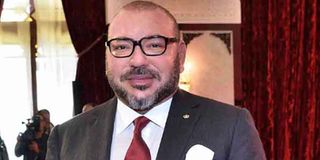Moroccan king sacks ministers over troubled northern region

What you need to know:
- The Rif was gripped earlier this year by months of angry demonstrations calling for jobs, development and an end to corruption in the North African kingdom.
Rabat, Morocco | AFP | King Mohammed VI of Morocco on Tuesday sacked three ministers because of "delays in development programmes" in the troubled northern Rif region, the palace said.
The Rif was gripped earlier this year by months of angry demonstrations calling for jobs, development and an end to corruption in the North African kingdom.
Morocco in 2015 launched a $700 million (600 million euro) programme to revive the northern port city of Al-Hoceima, a focal point of the protest movement.
But a report released on Tuesday cited "malfunctions" and unjustified delays, the royal cabinet said.
"There was a big delay in launching projects, and worse, the majority of these projects were not even launched," it said.
The ministers of education, Mohamed Hassad, health, Houcine El Ouardi, and housing, Nabil Benabdellah, were relieved of their duties along with two other senior officials
The sackings came the same day as the leader of a protest movement that has shaken the Berber-majority Rif appeared in court in his first public appearance since being arrested in May.
Nasser Zefzafi emerged as a key figure in the Al-Hirak al-Shaabi movement that called for jobs, development and an end to corruption.
In court on Tuesday, he raised his fist and declared that "they refuse to give us the floor because they know that what we say will be right".
Charged with "undermining the internal security of the state", Zefzafi could face the death penalty.
Originally sparked by the death of a fisherman crushed in a rubbish truck as he tried to salvage his confiscated catch, the demonstrations snowballed from grievances over local poverty into a major challenge to the authorities.
In response, security forces launched a crackdown, slinging the alleged leaders of the mainly young protesters in jail in May and June.
The Rif has long had a tense relationship with the central authorities in Rabat, and it was at the heart of the Arab Spring-inspired protests in Morocco in February 2011.
King Mohamed VI relinquished some of his near-absolute control through constitutional reforms following the 2011 protests.



